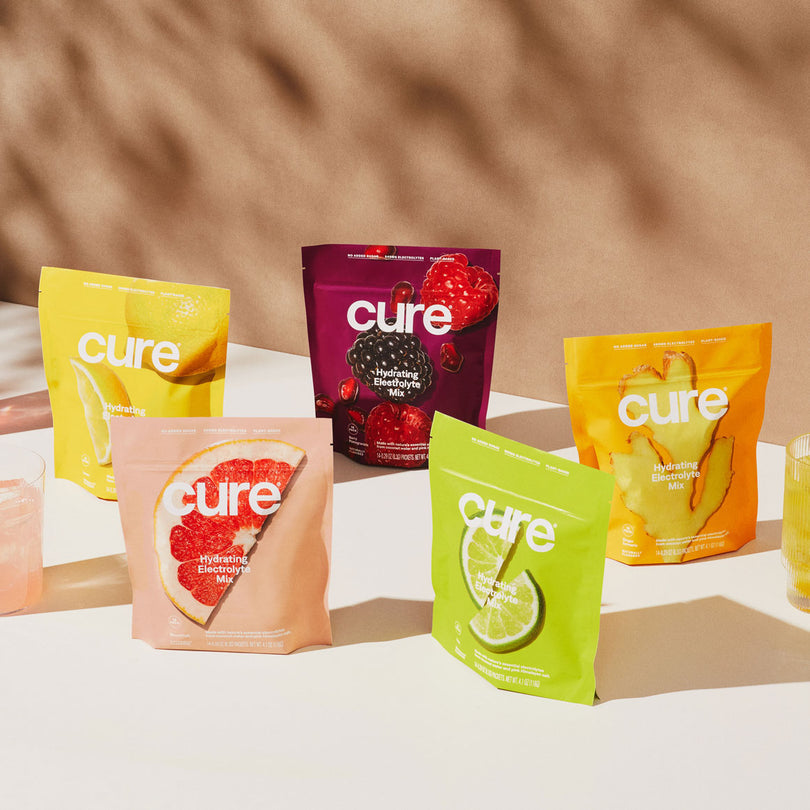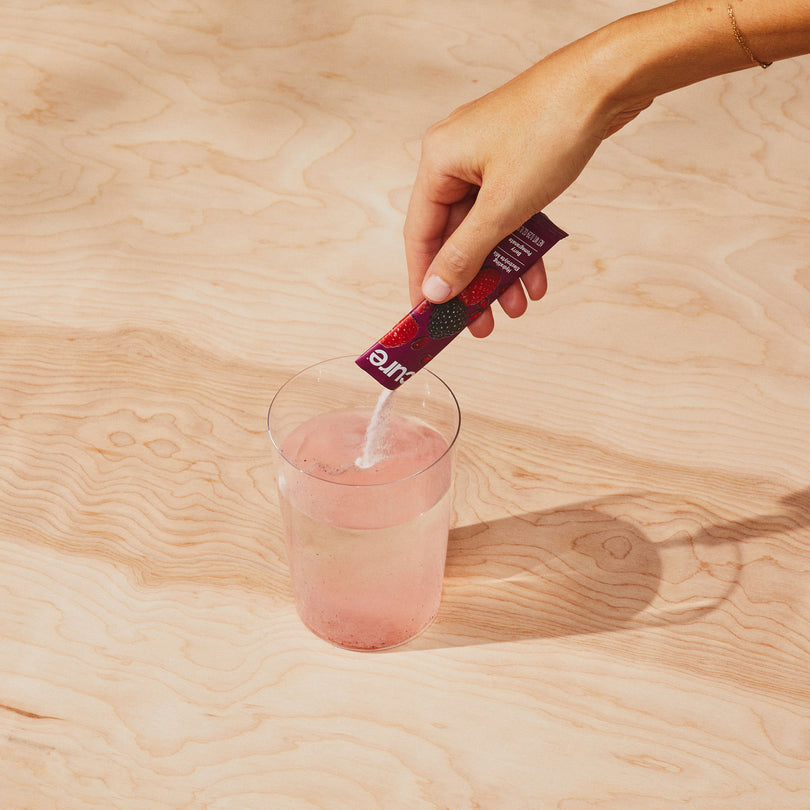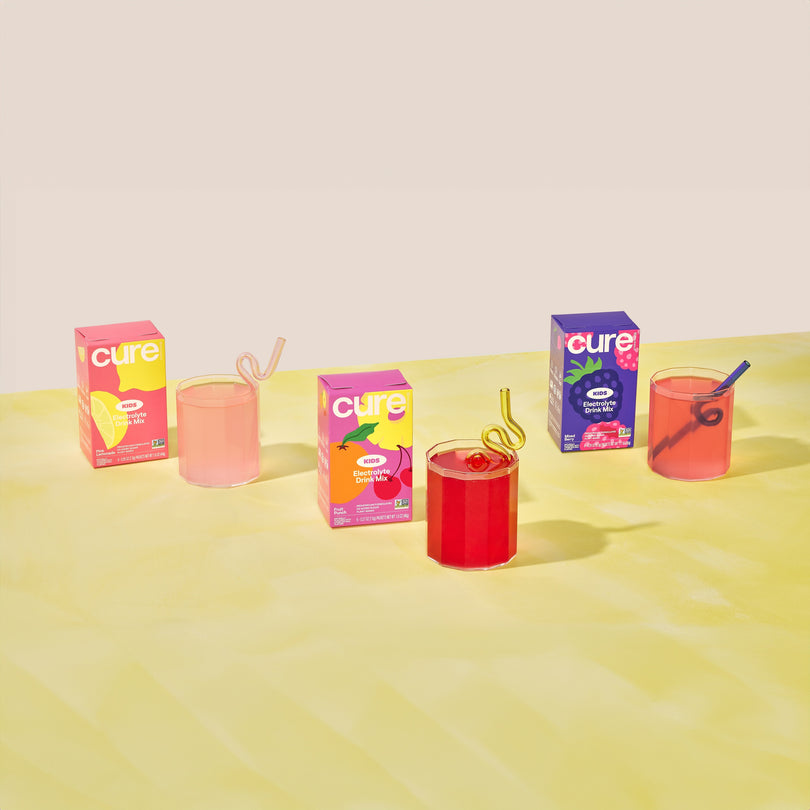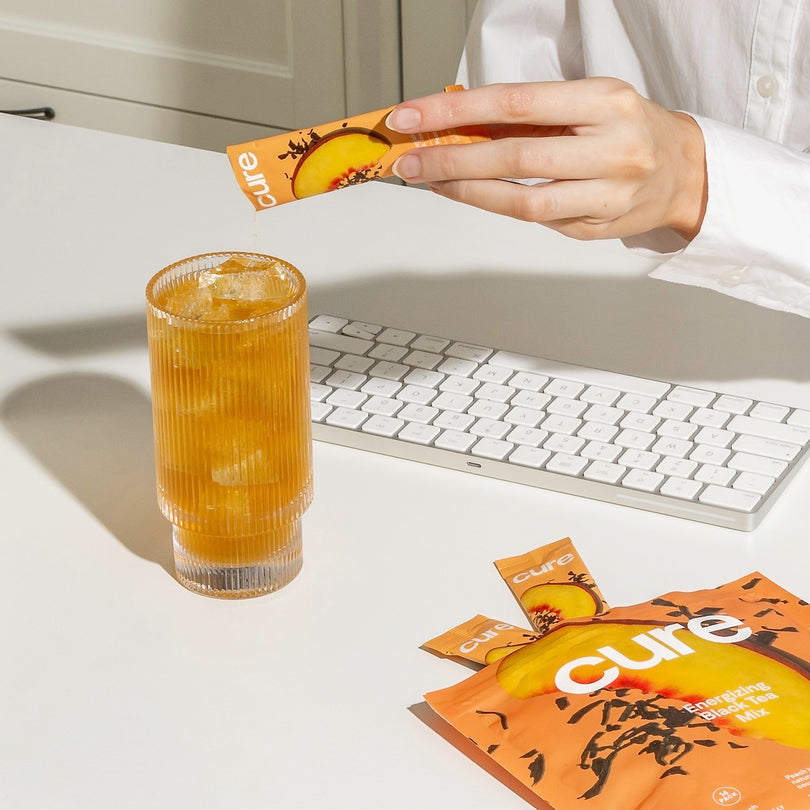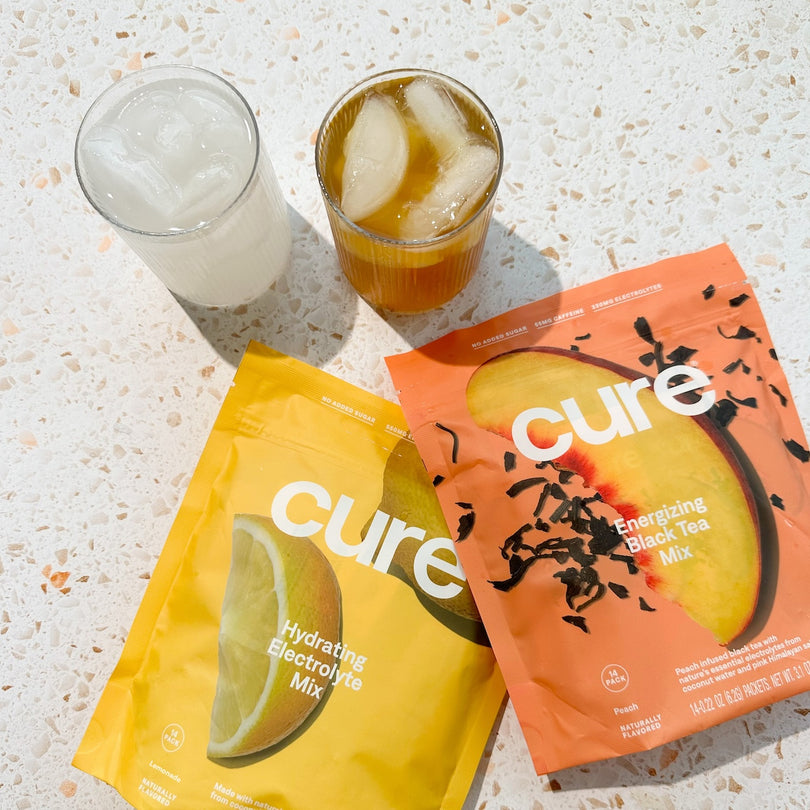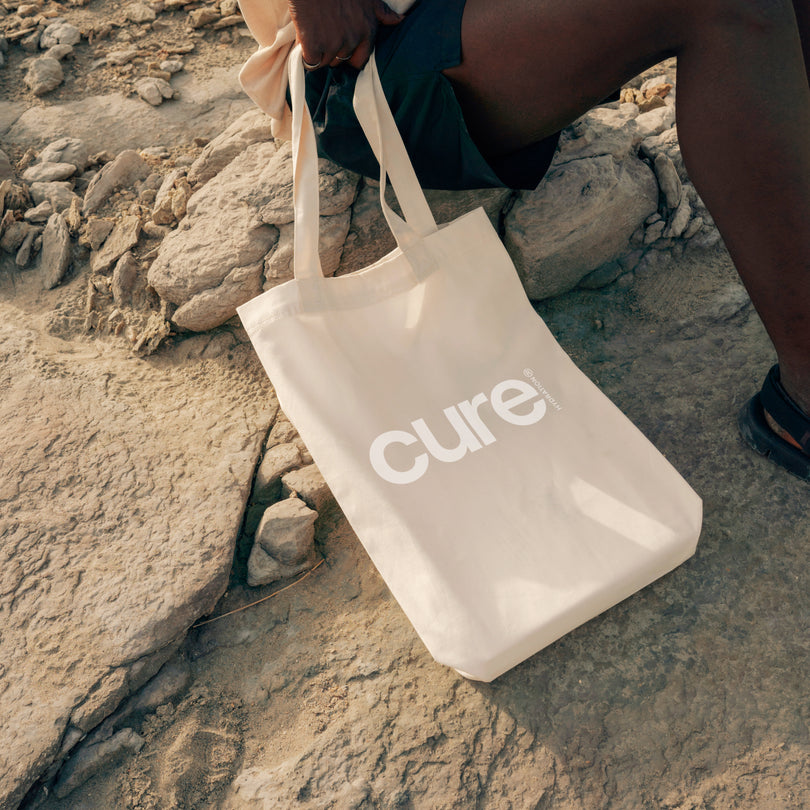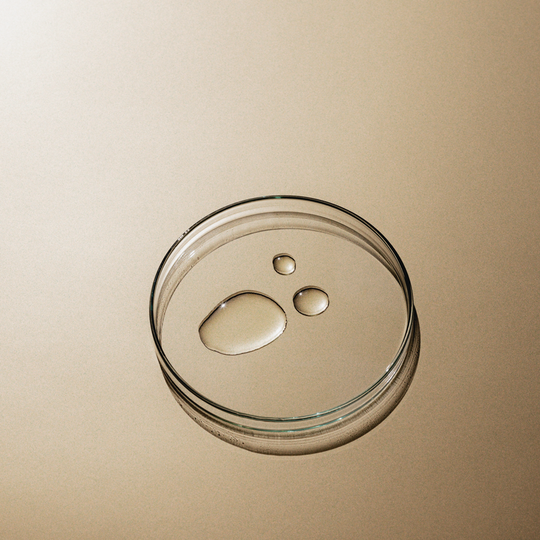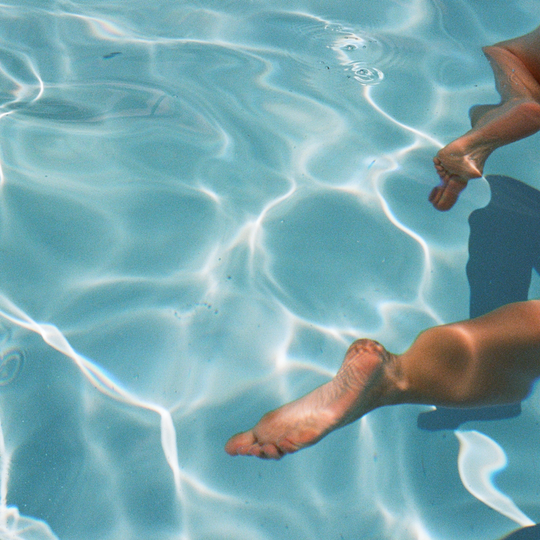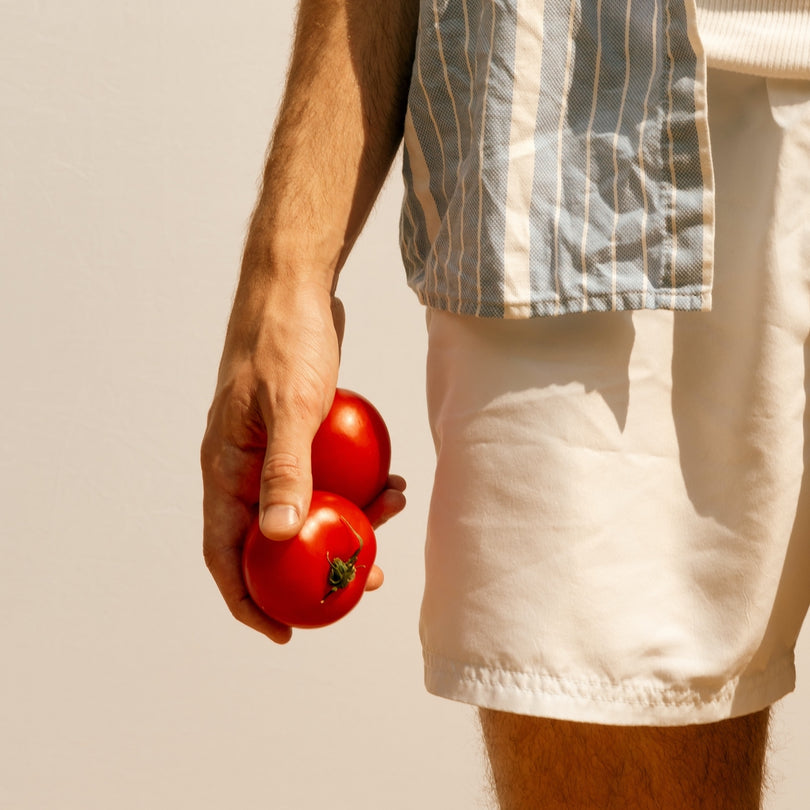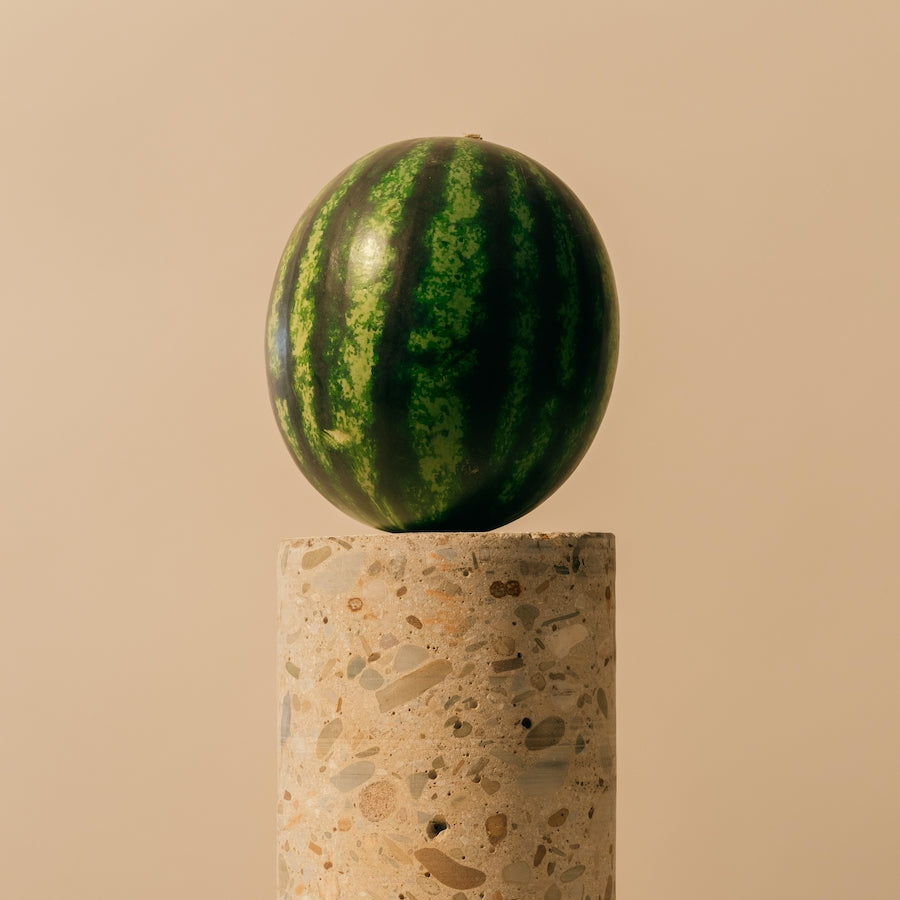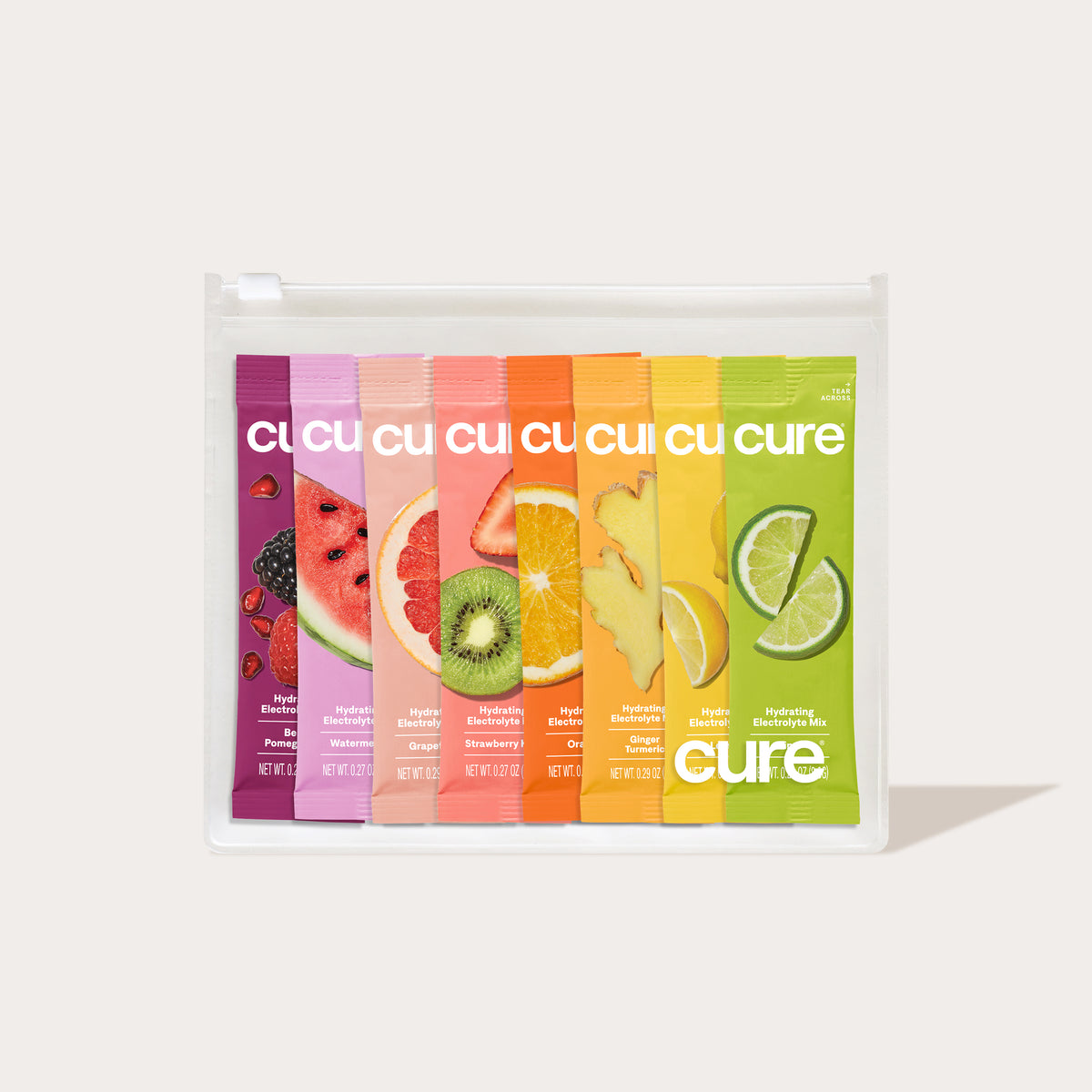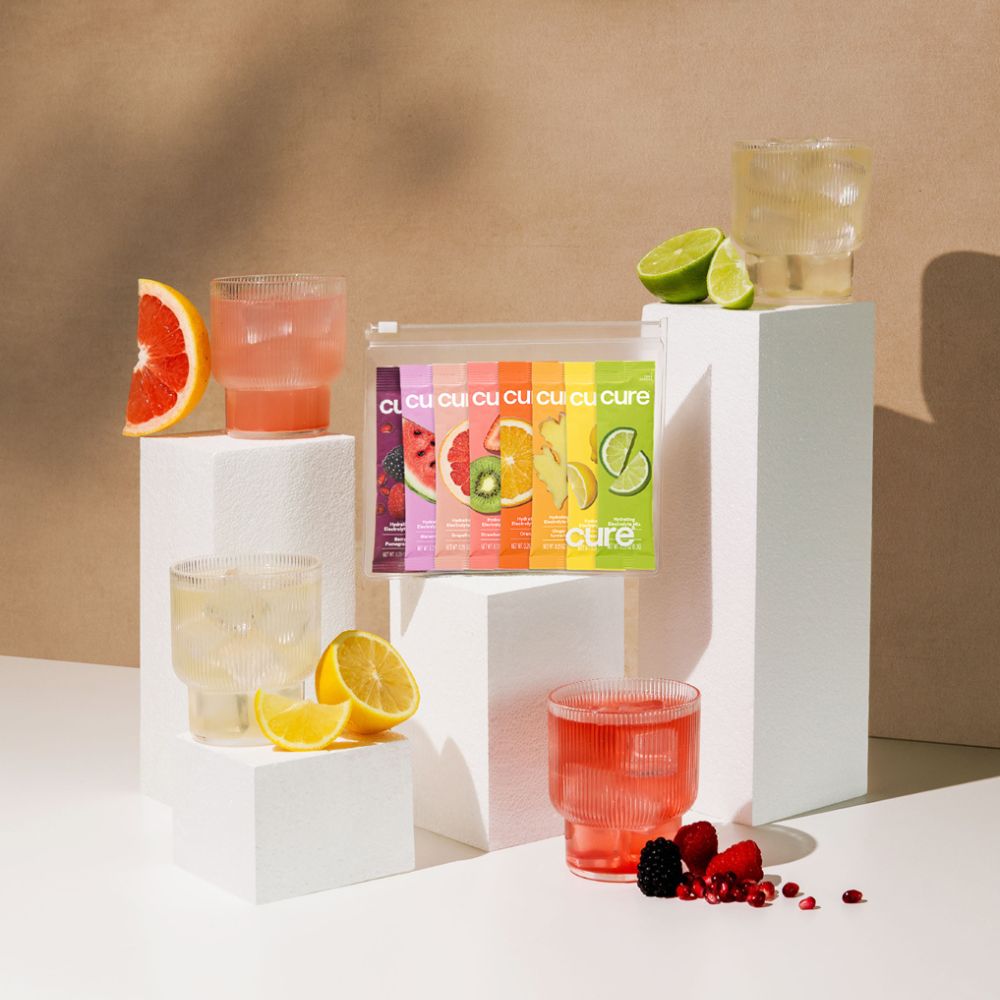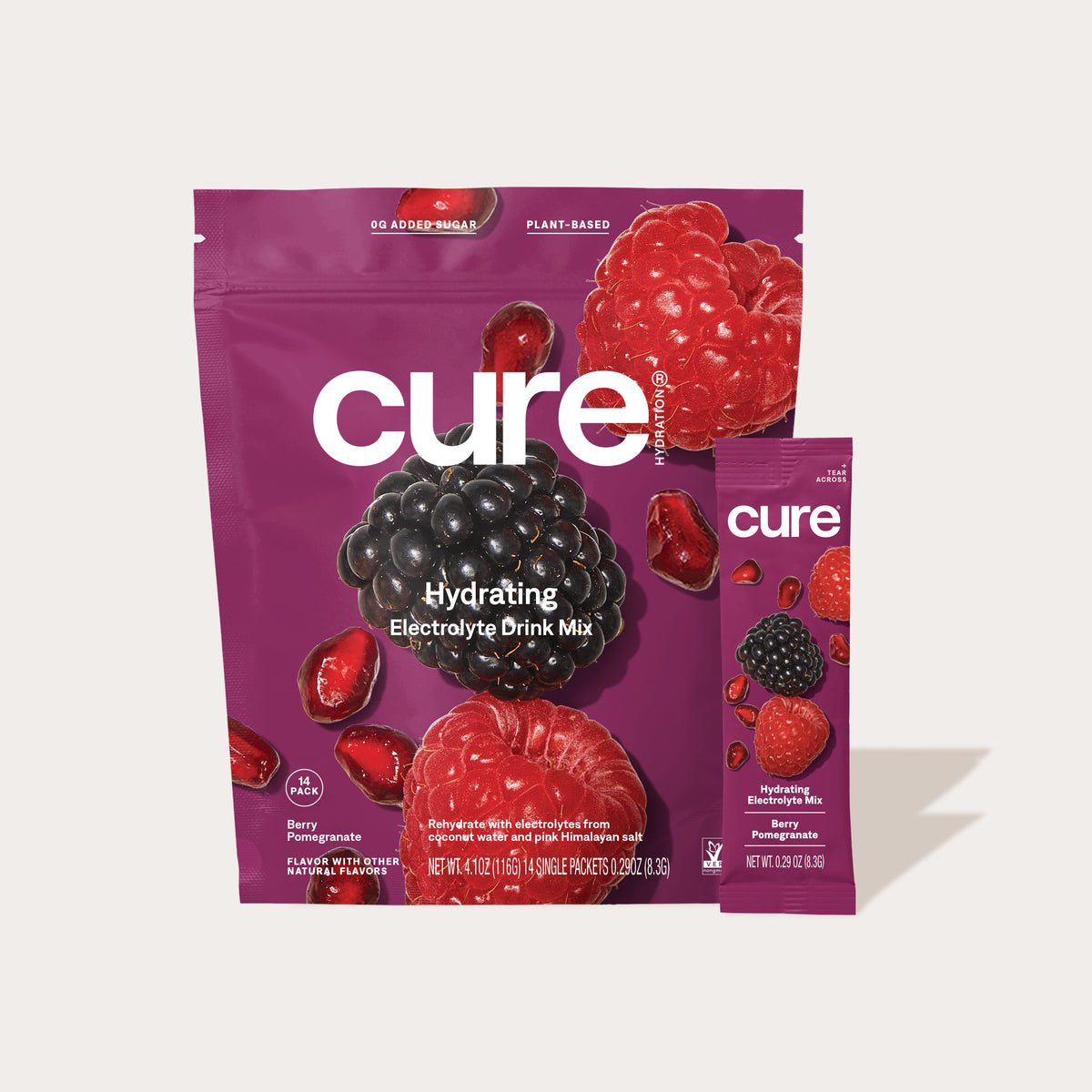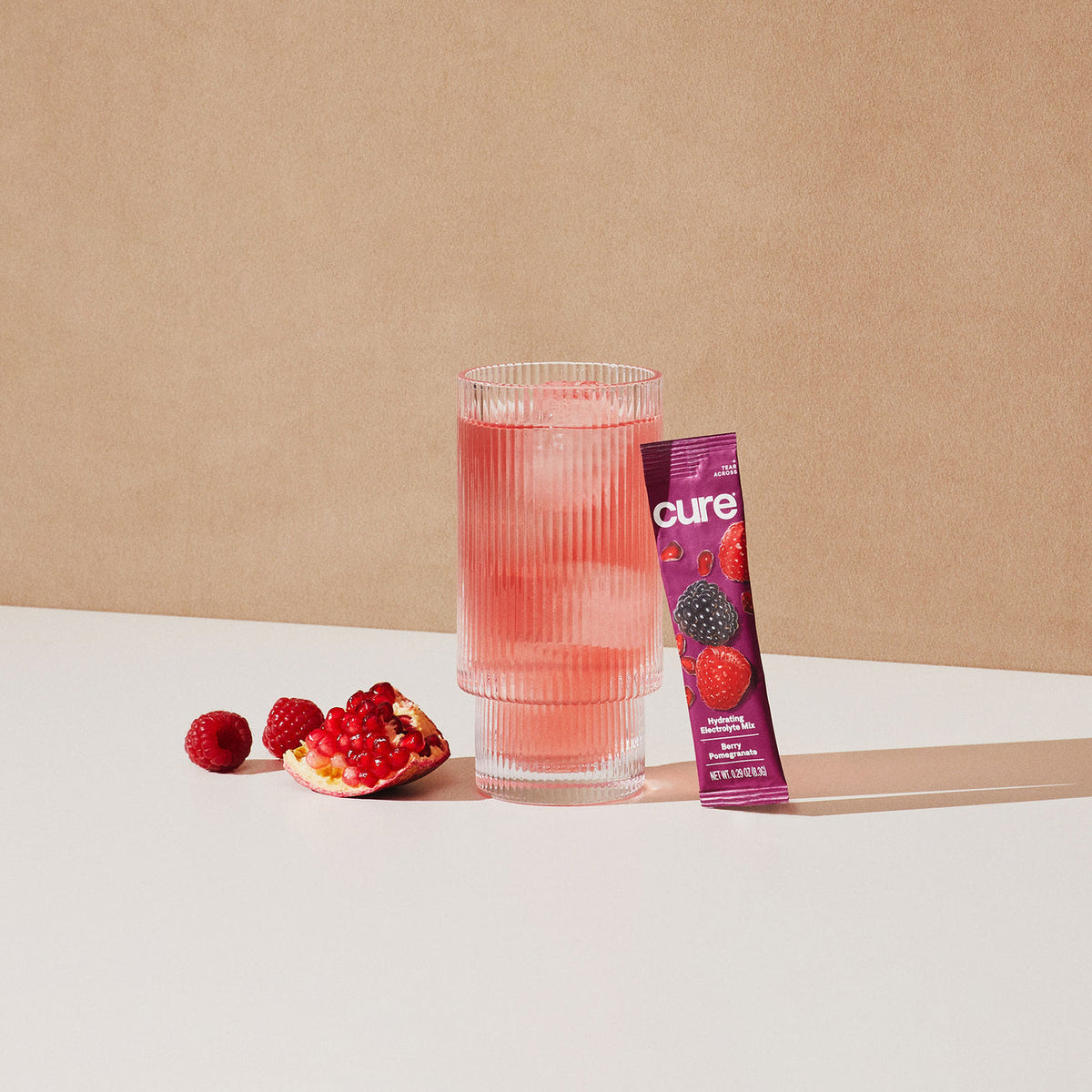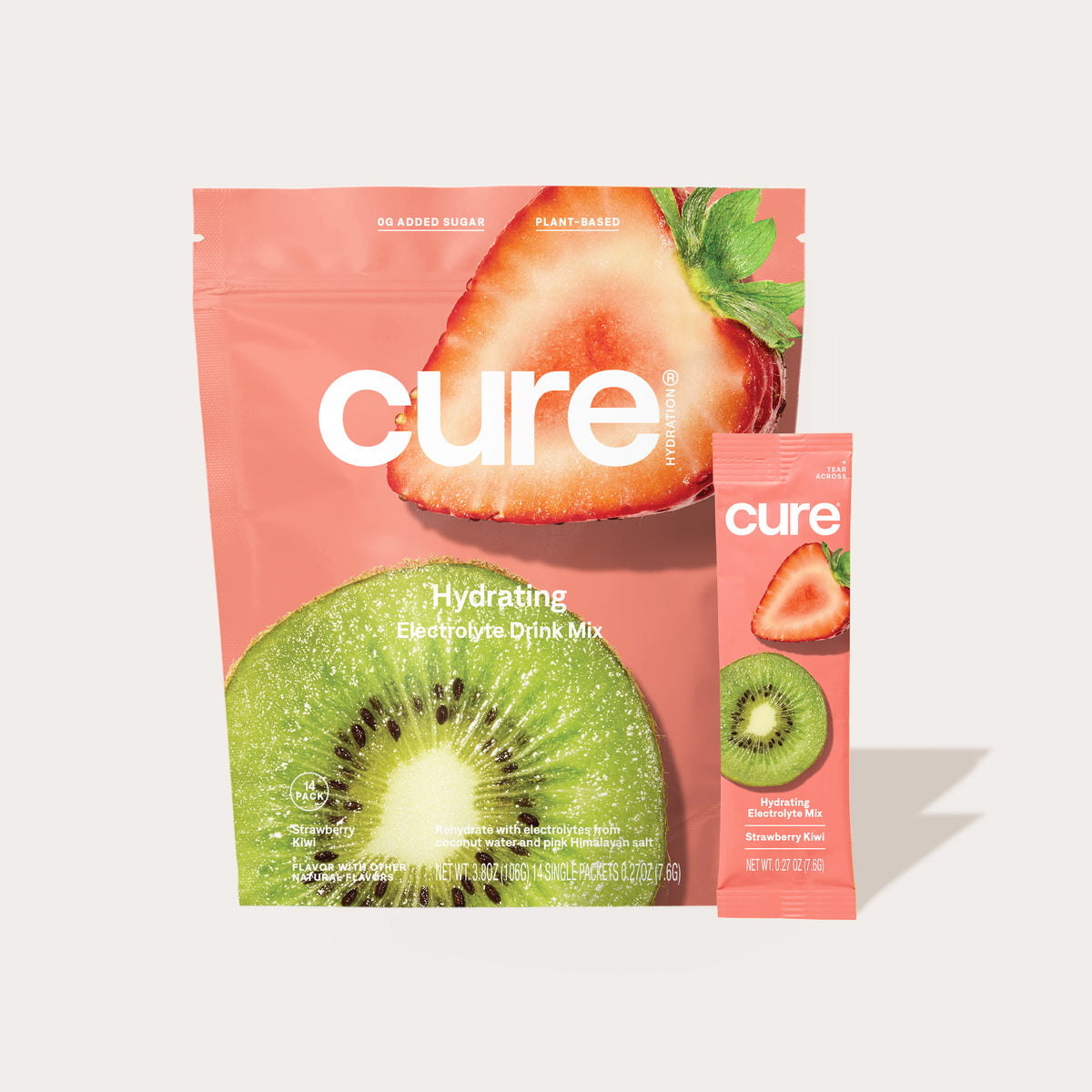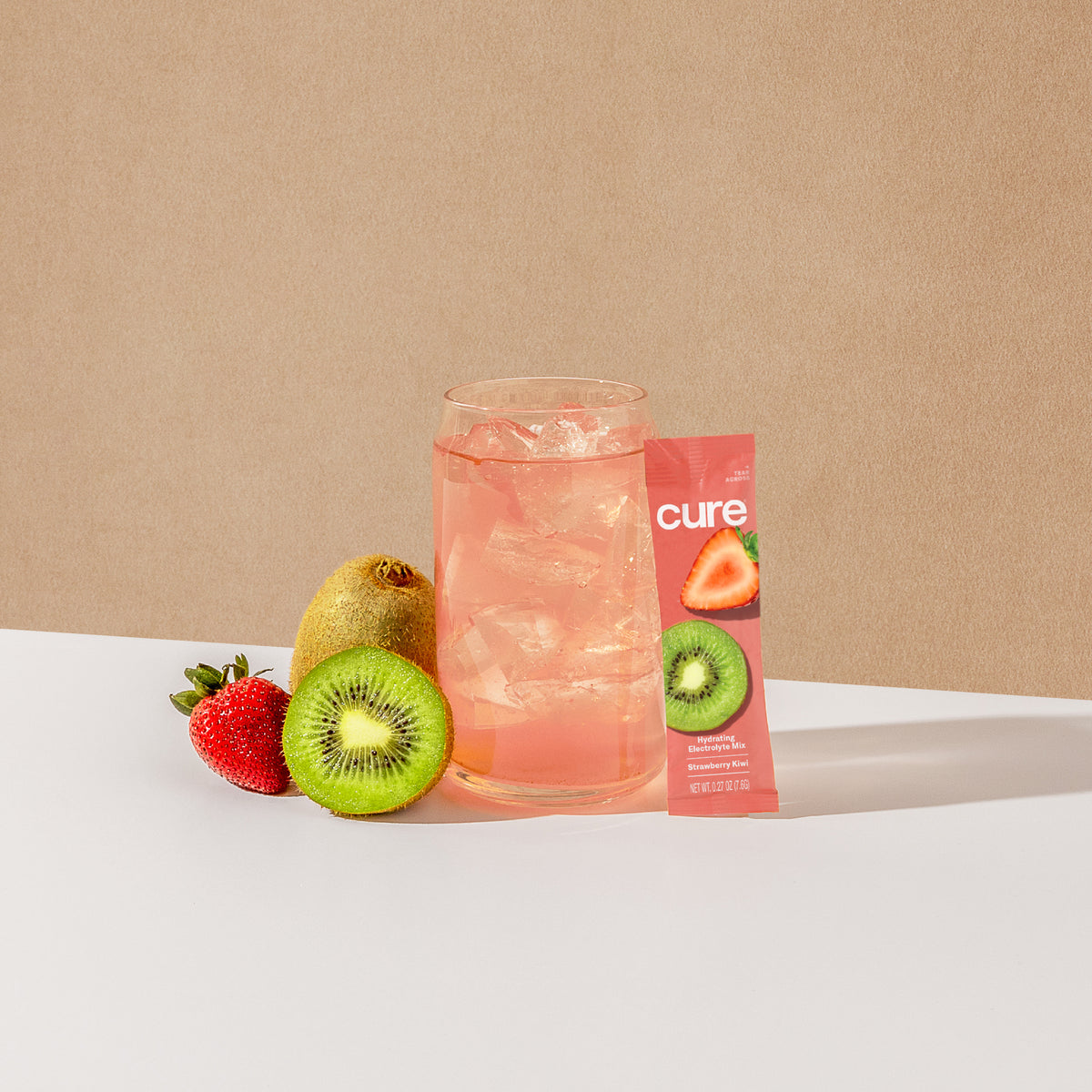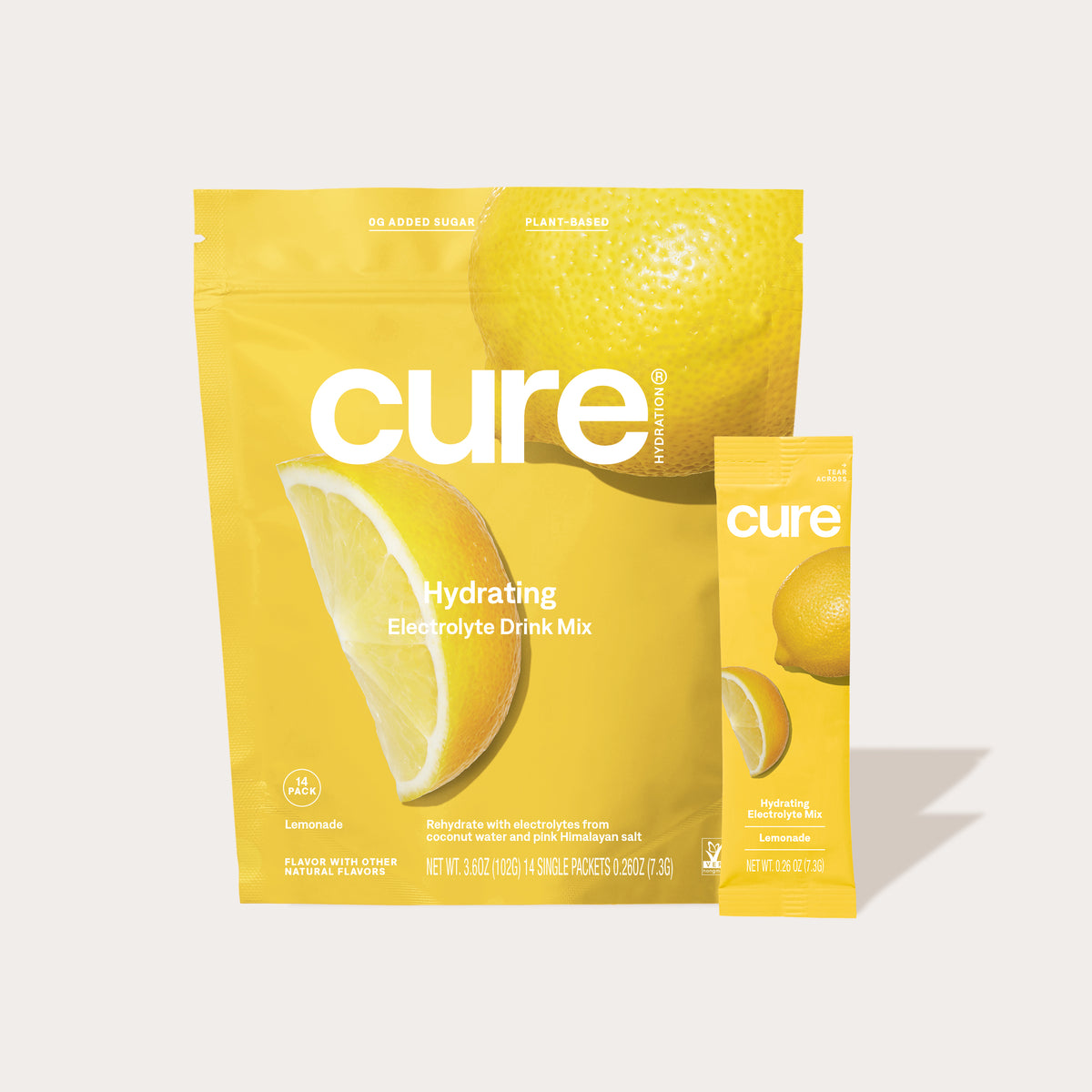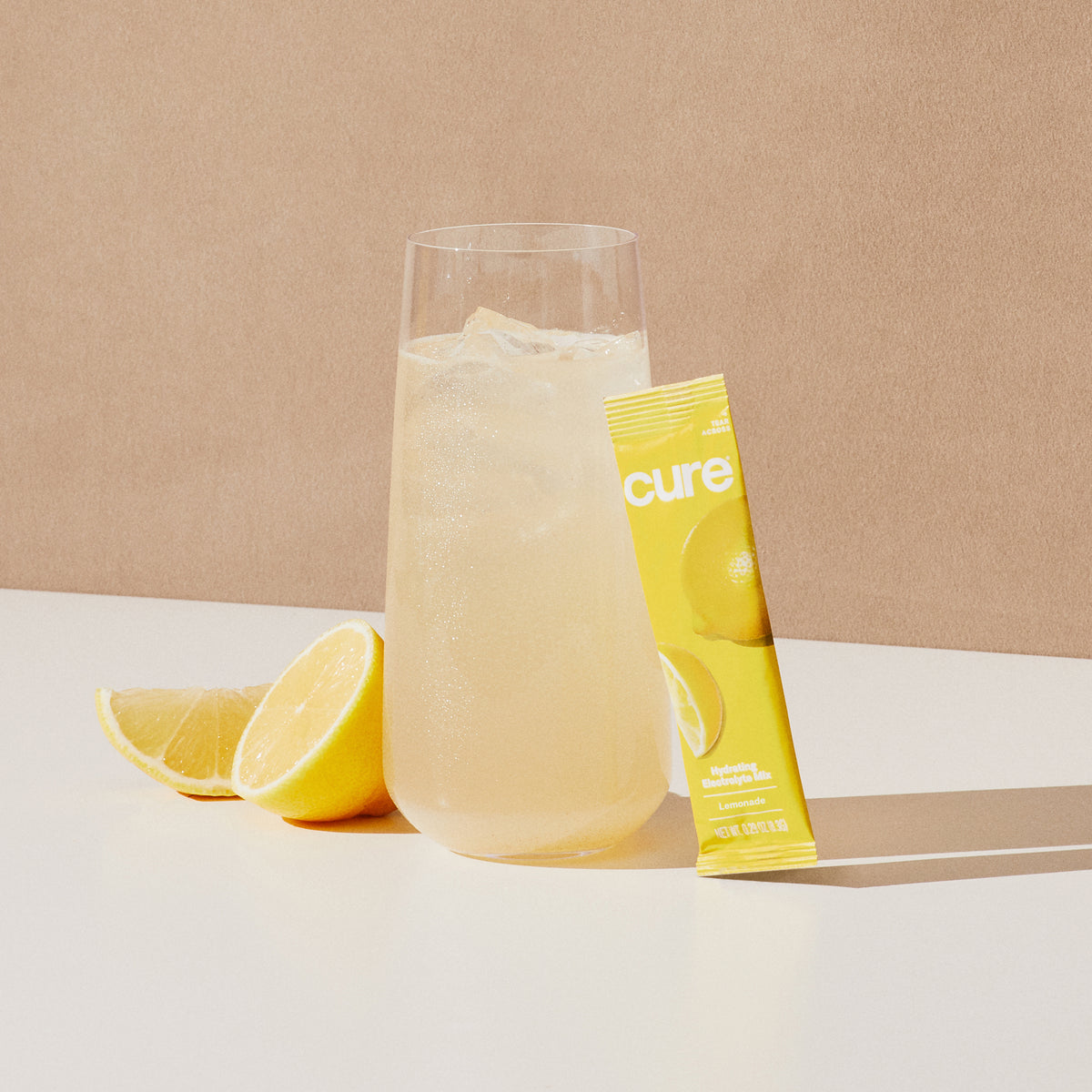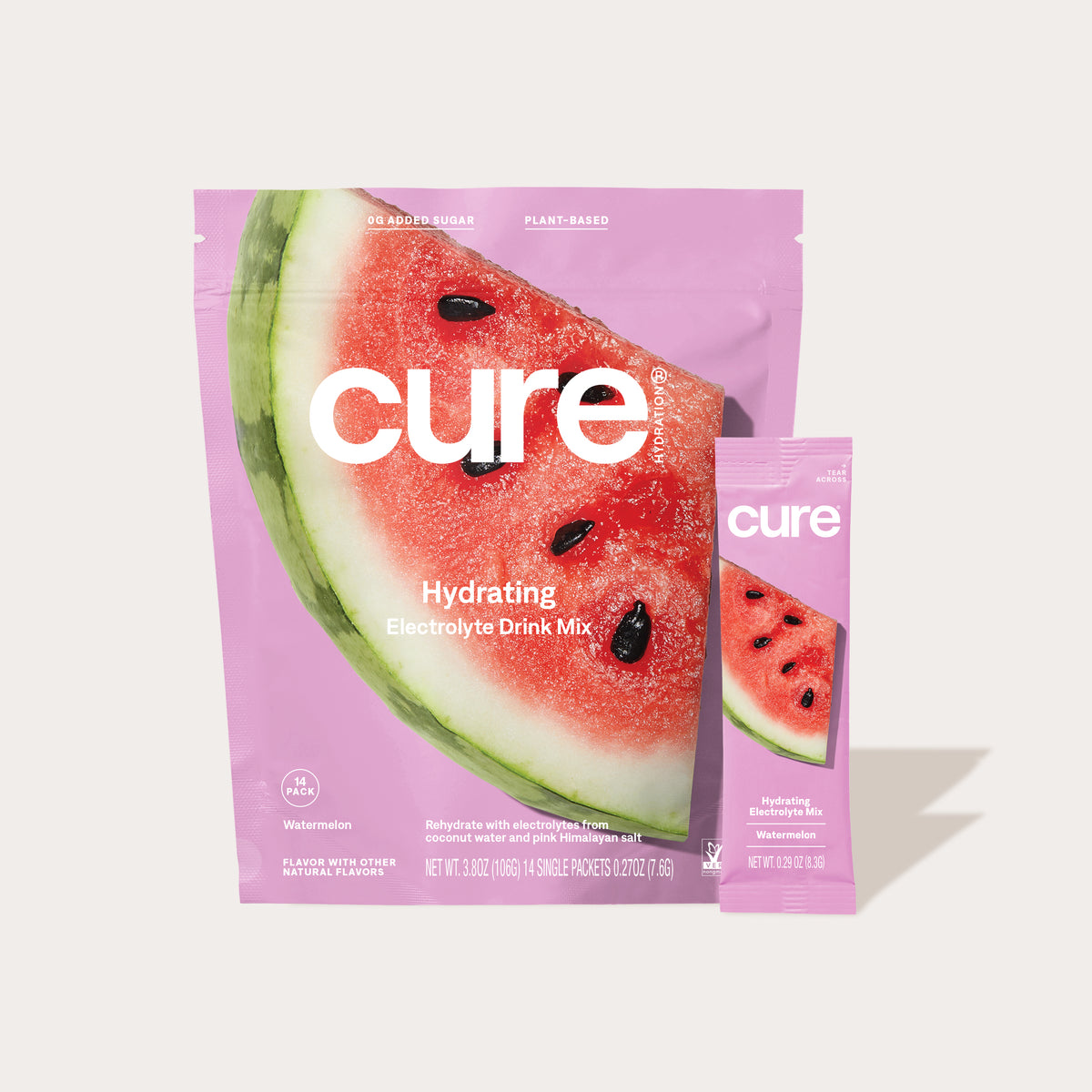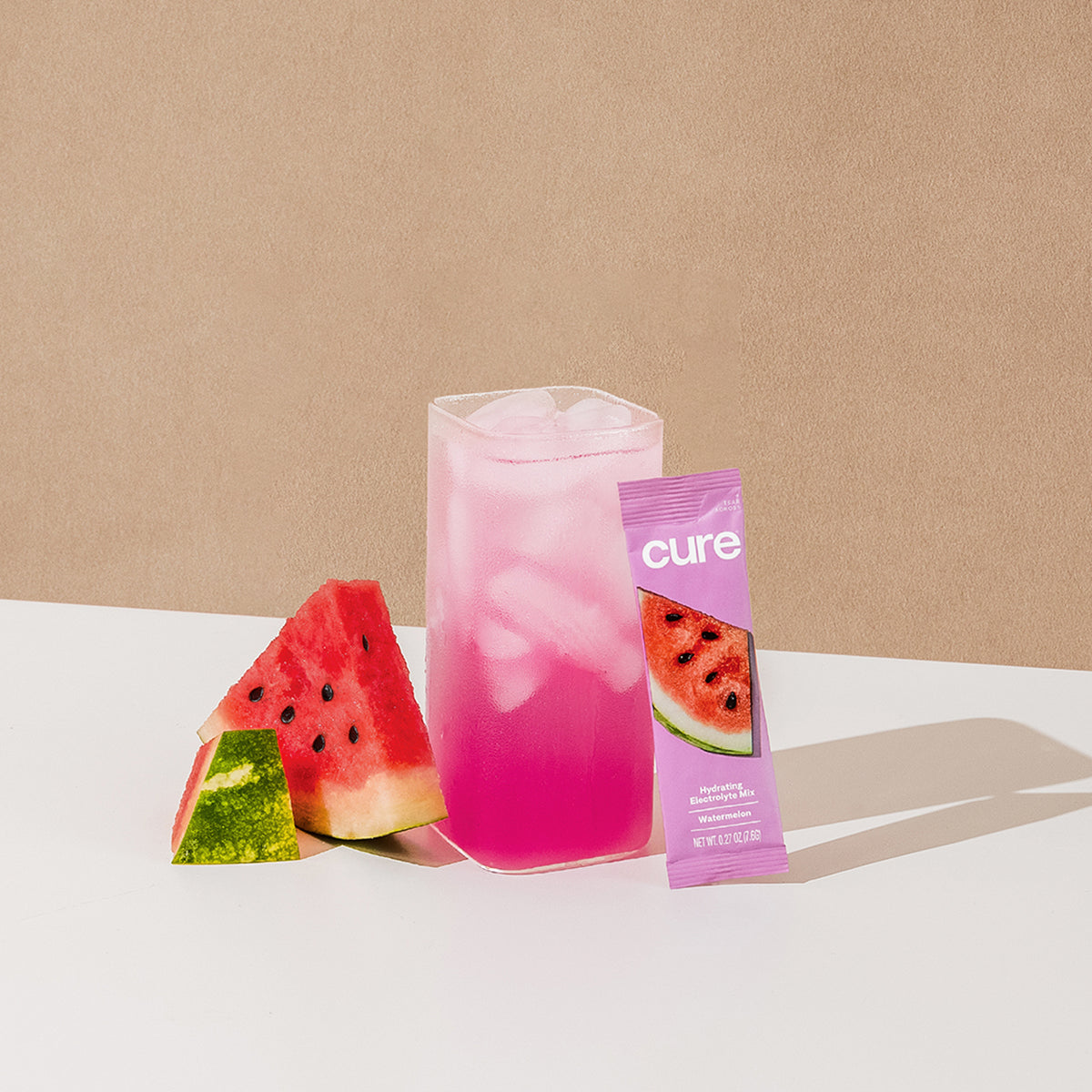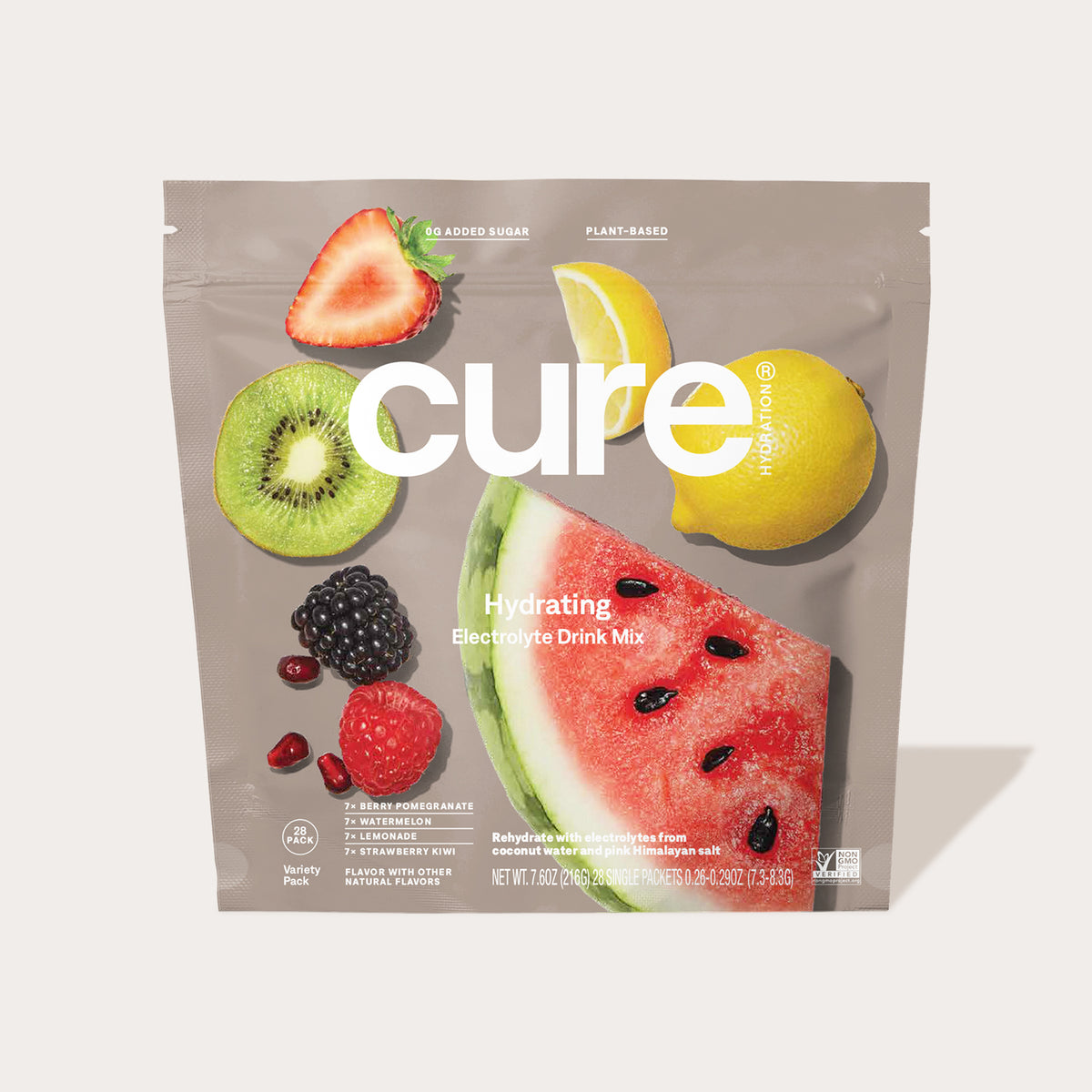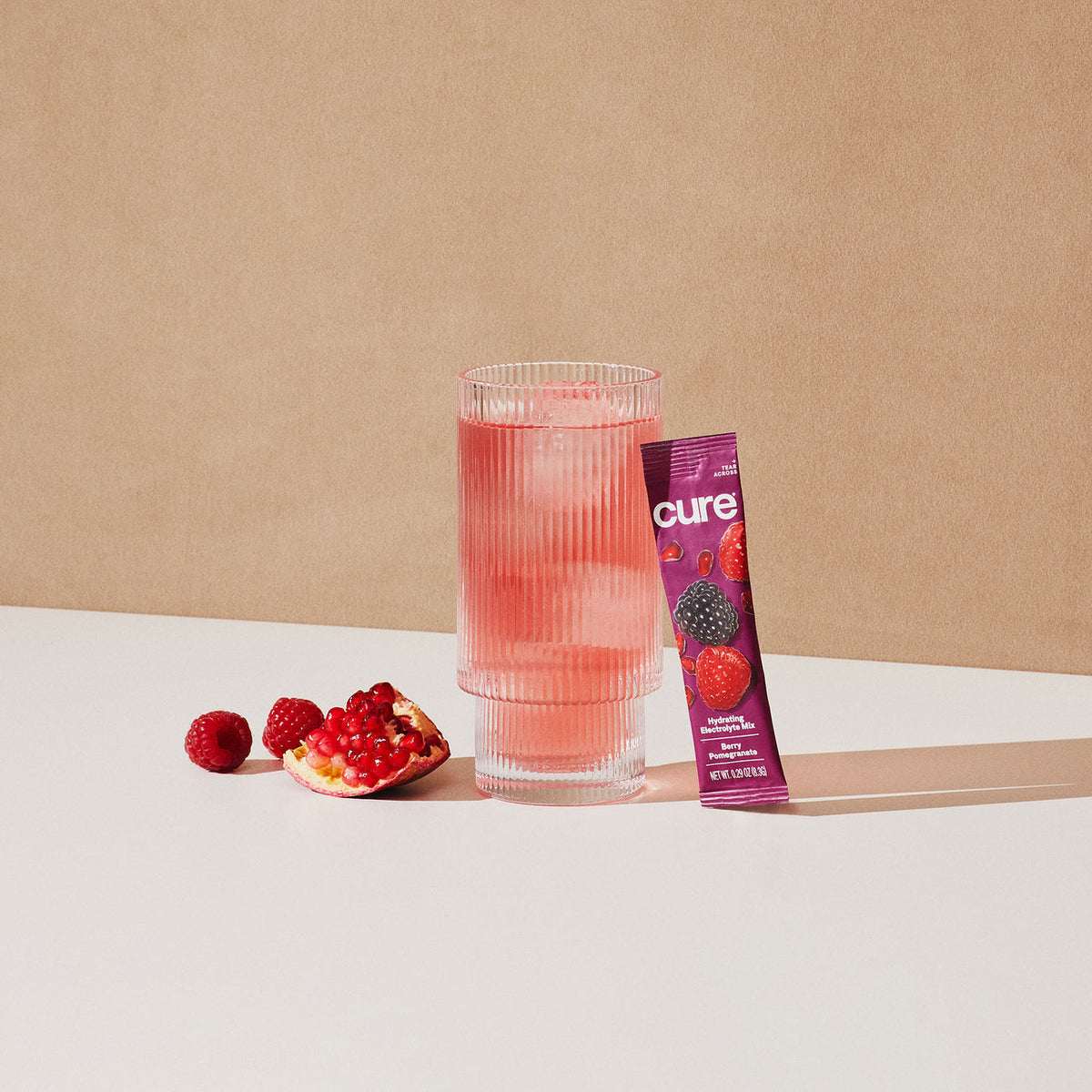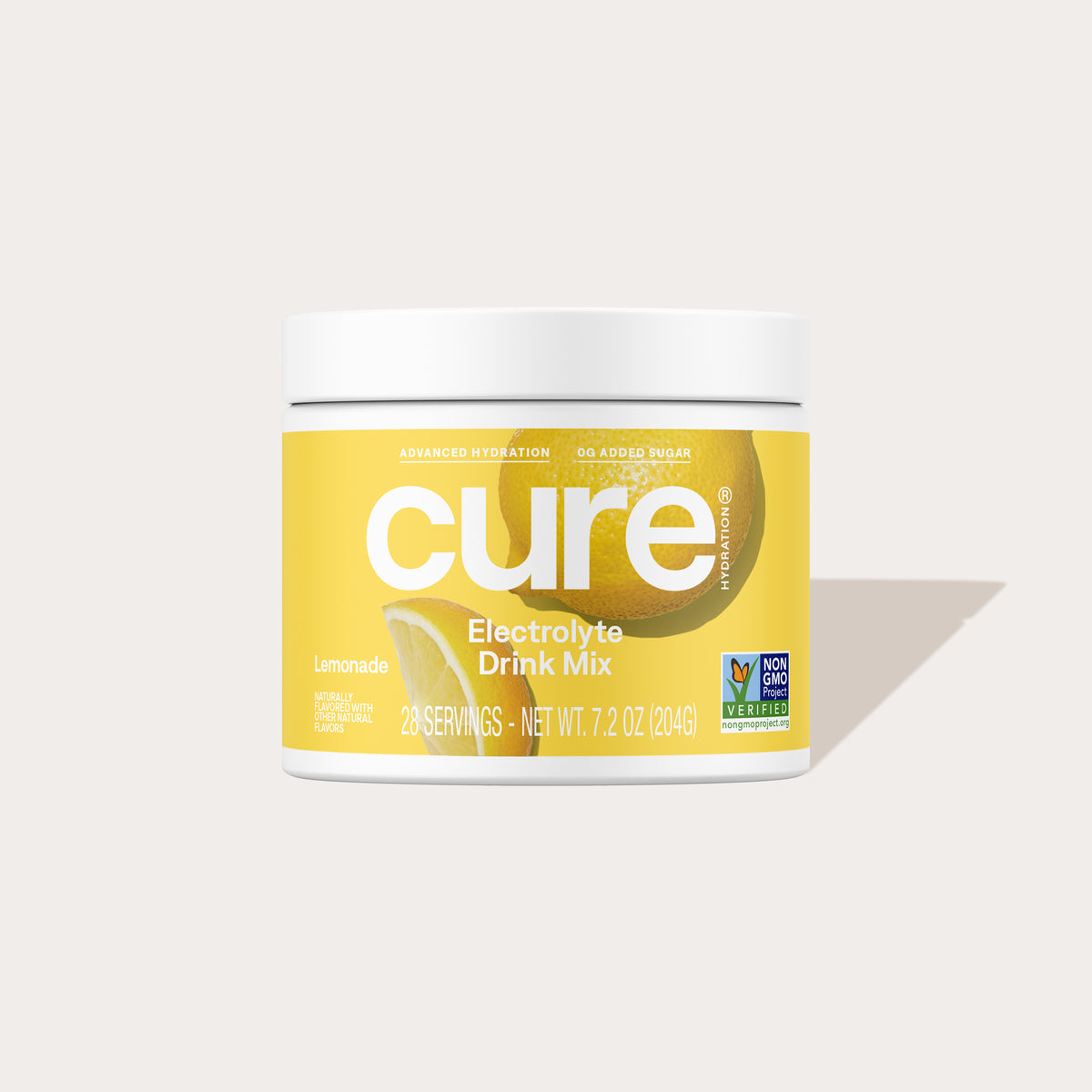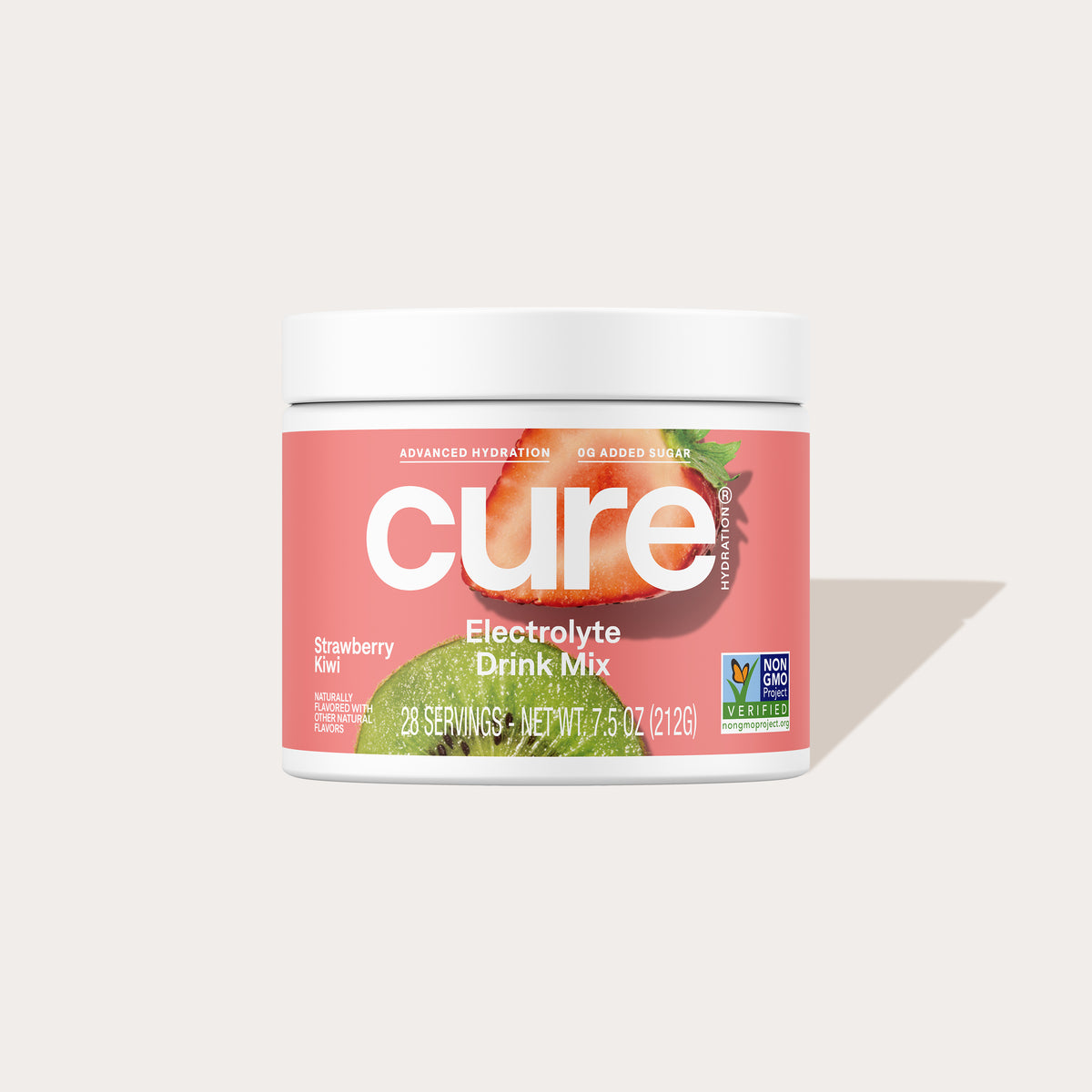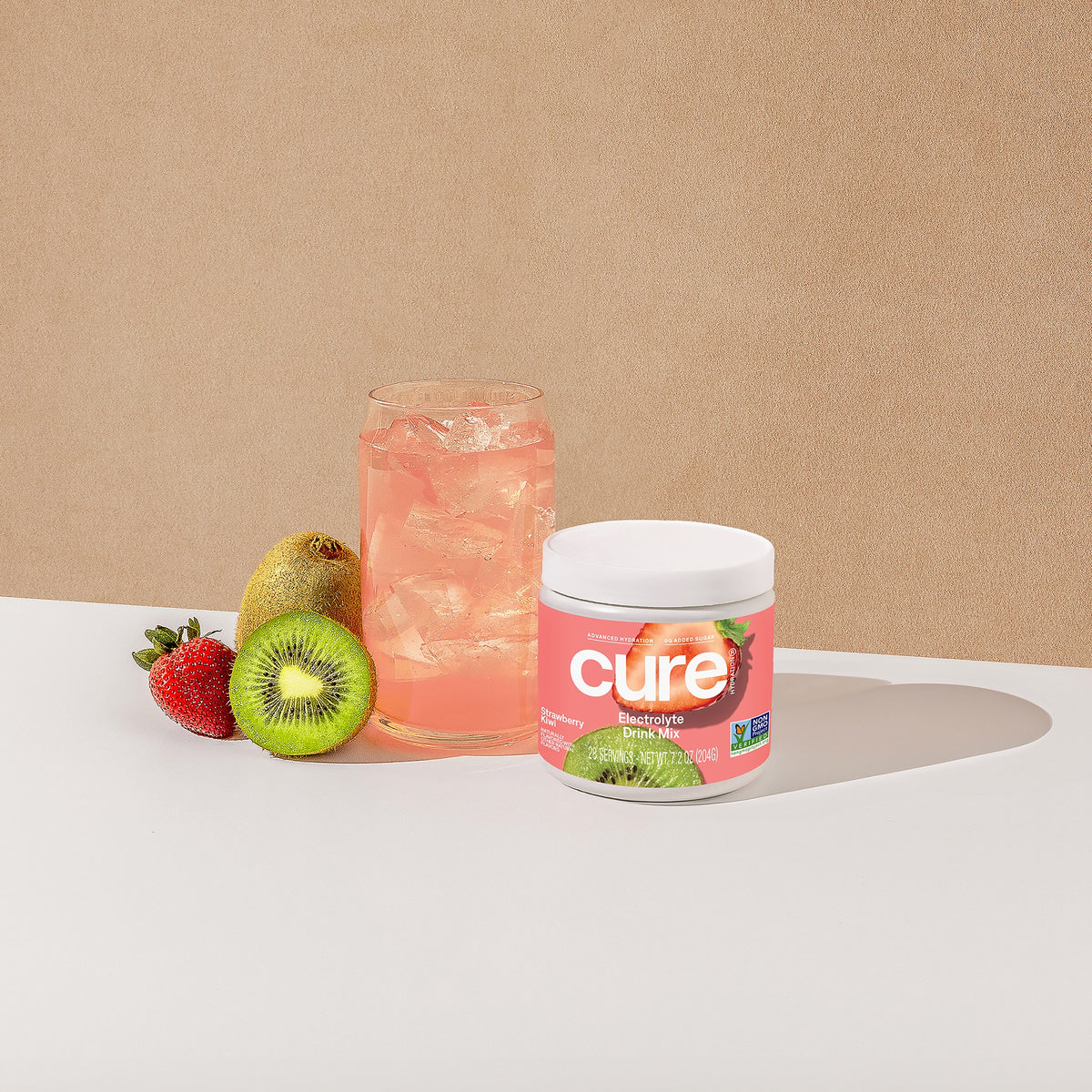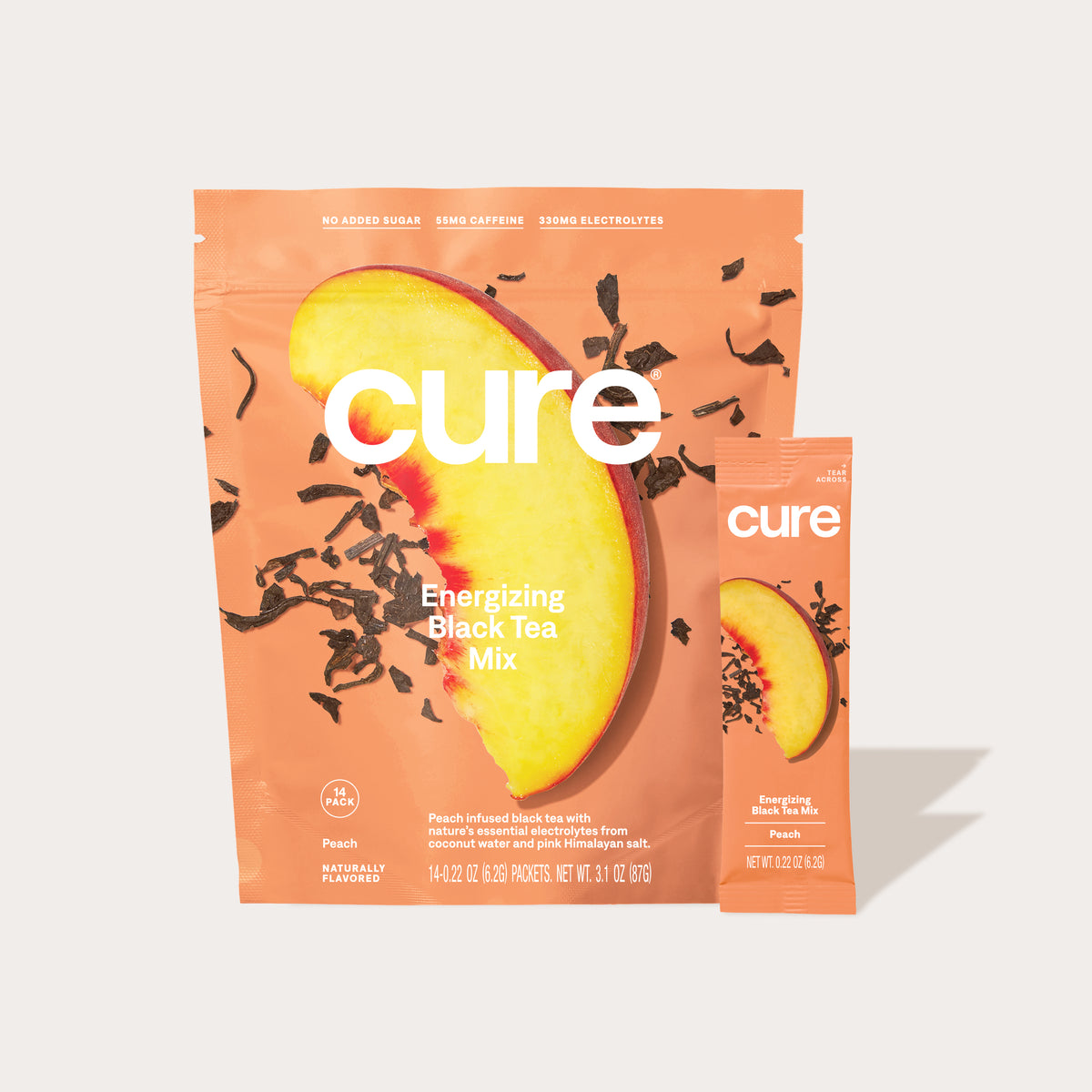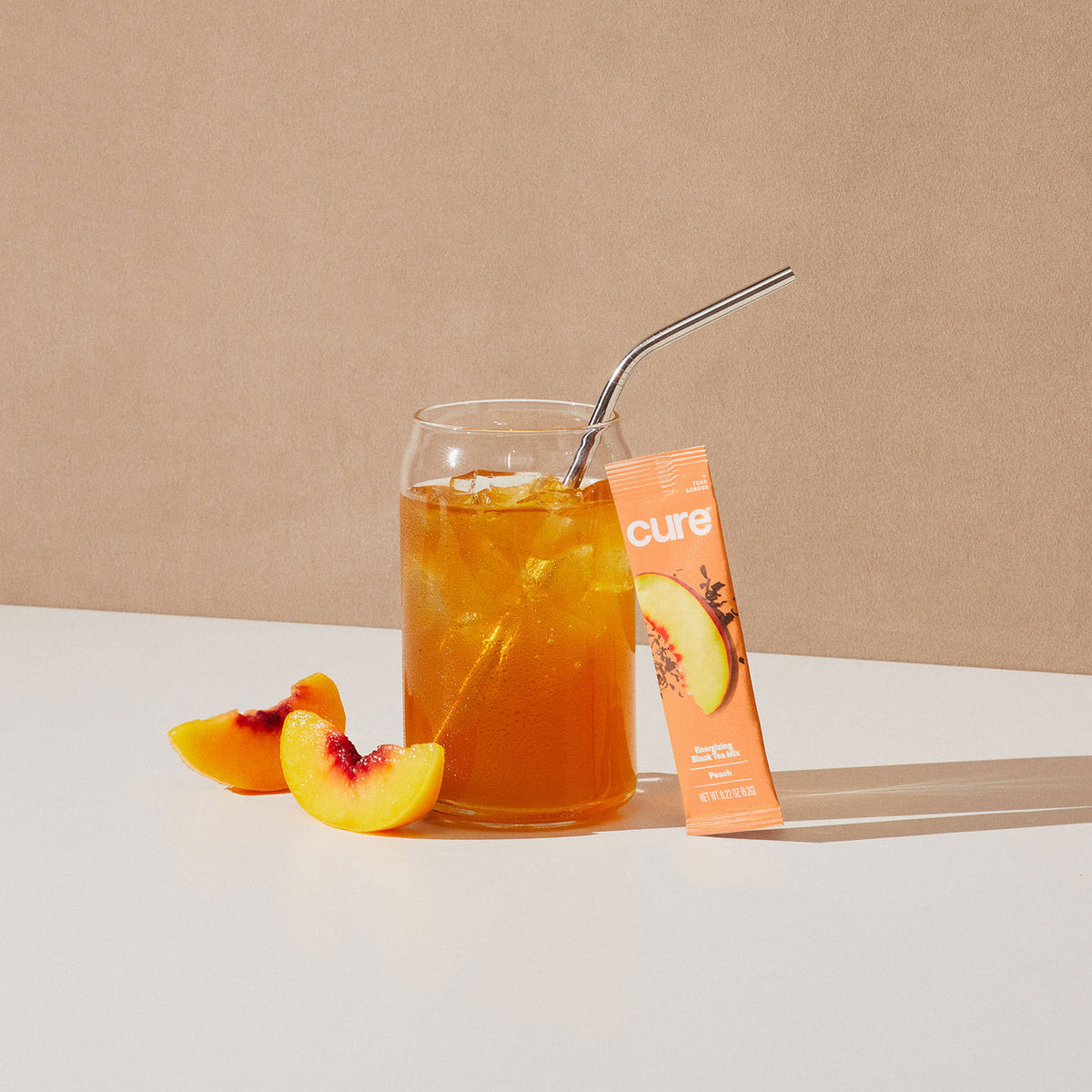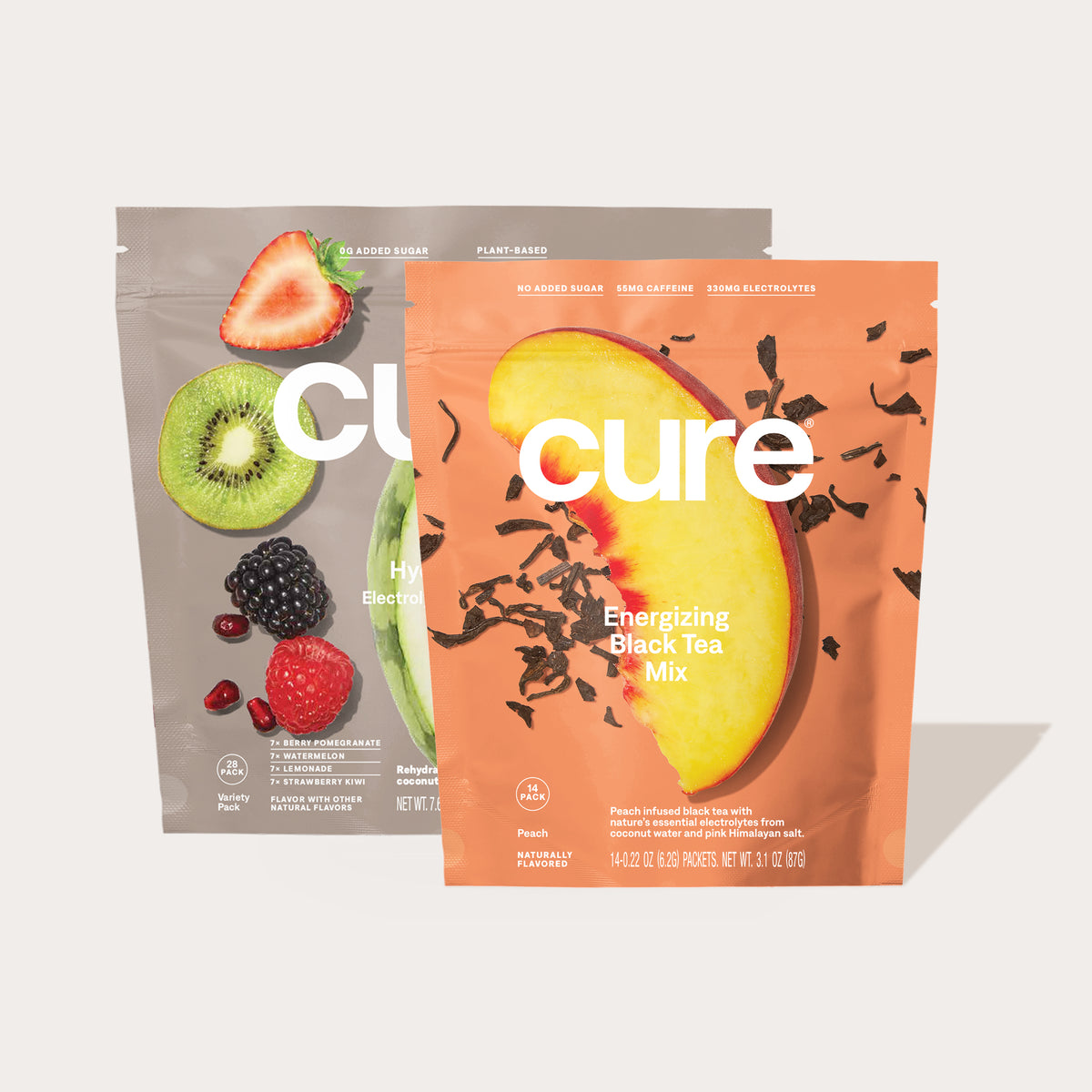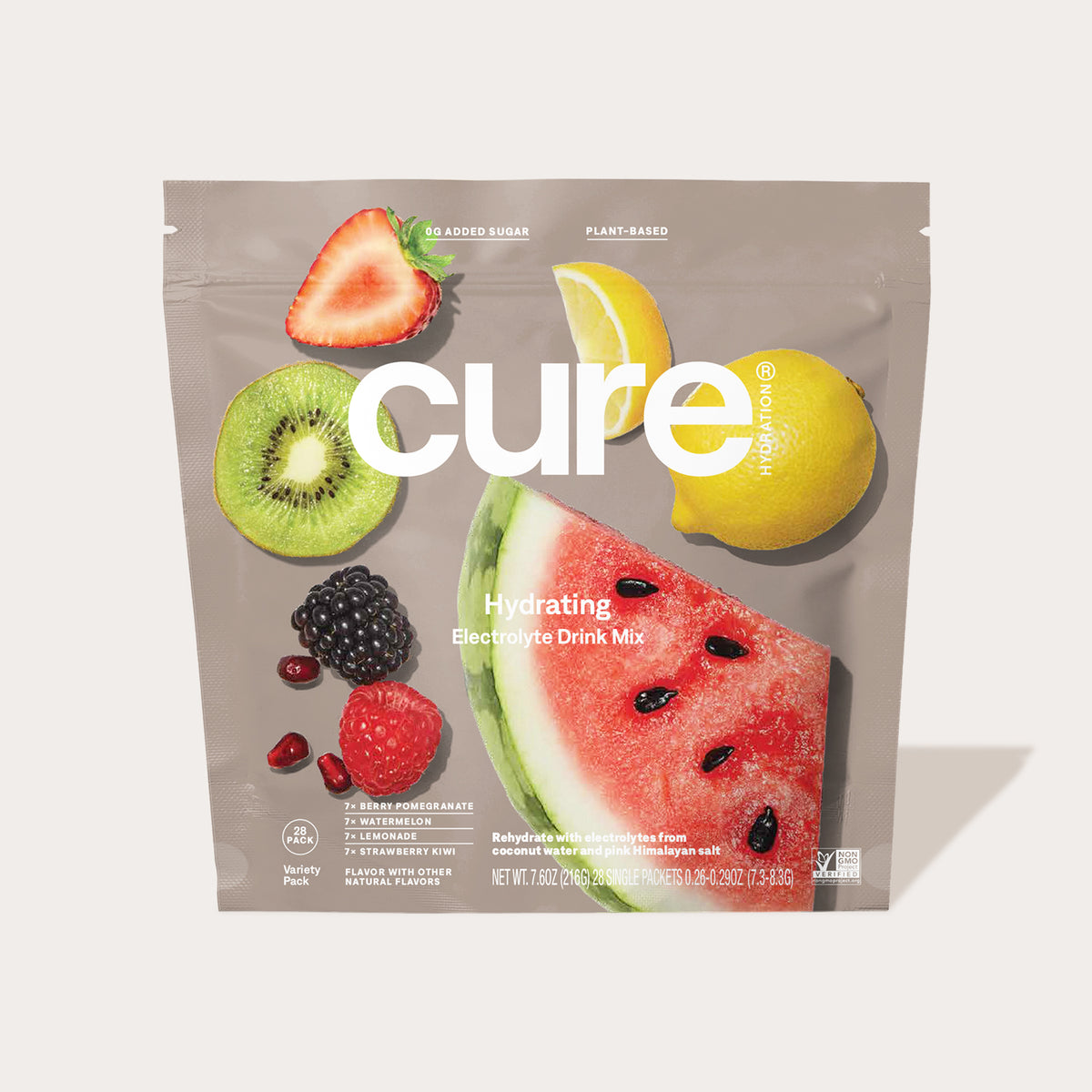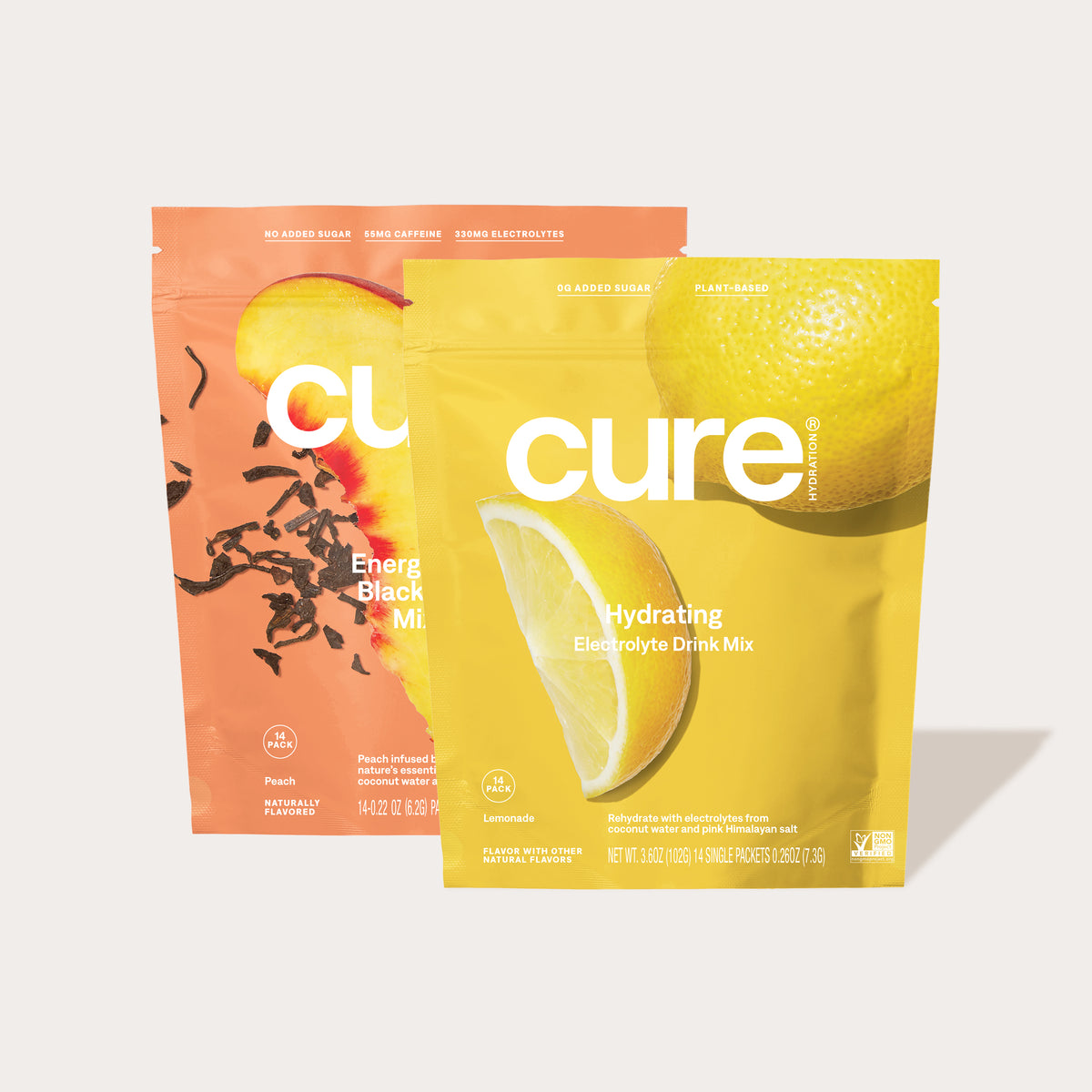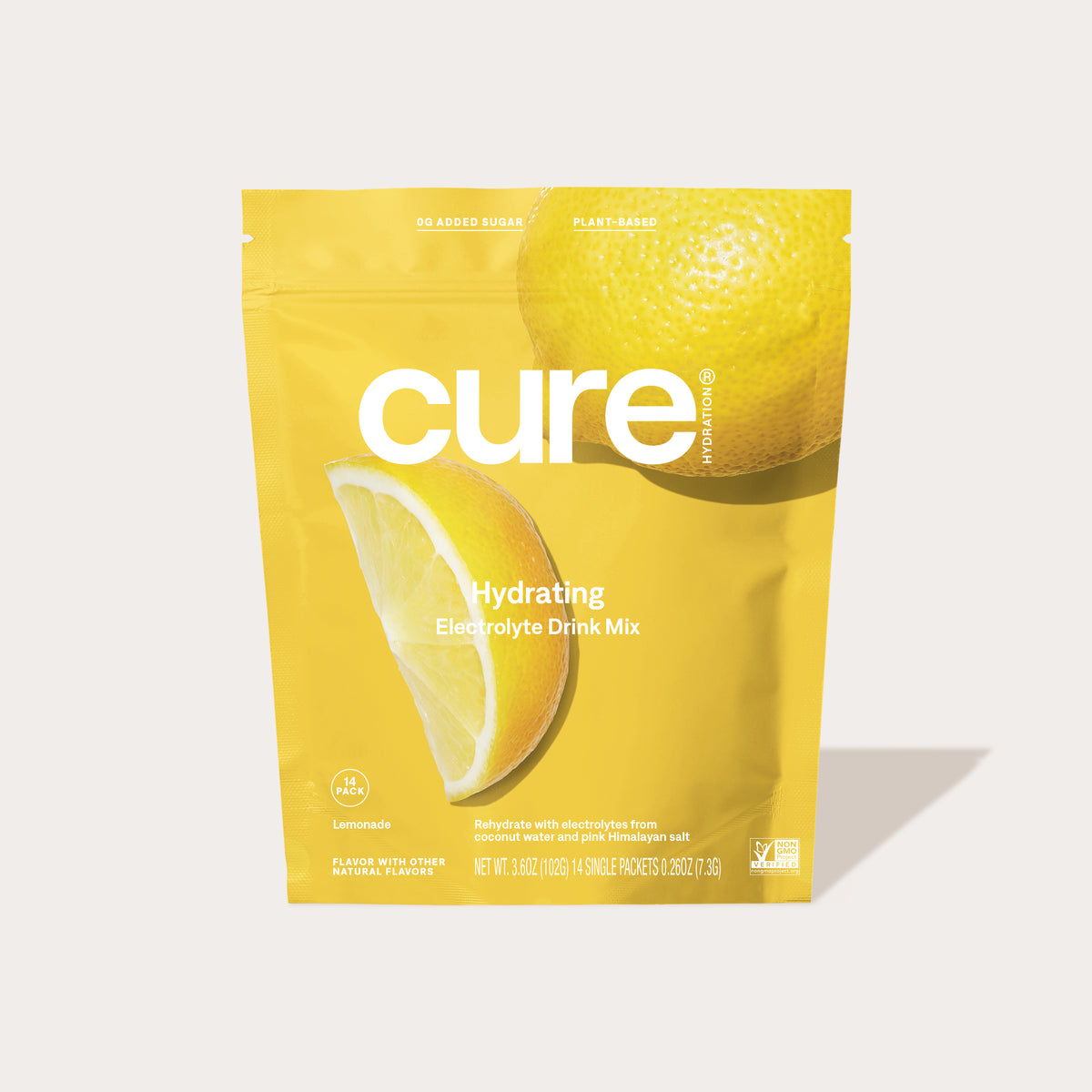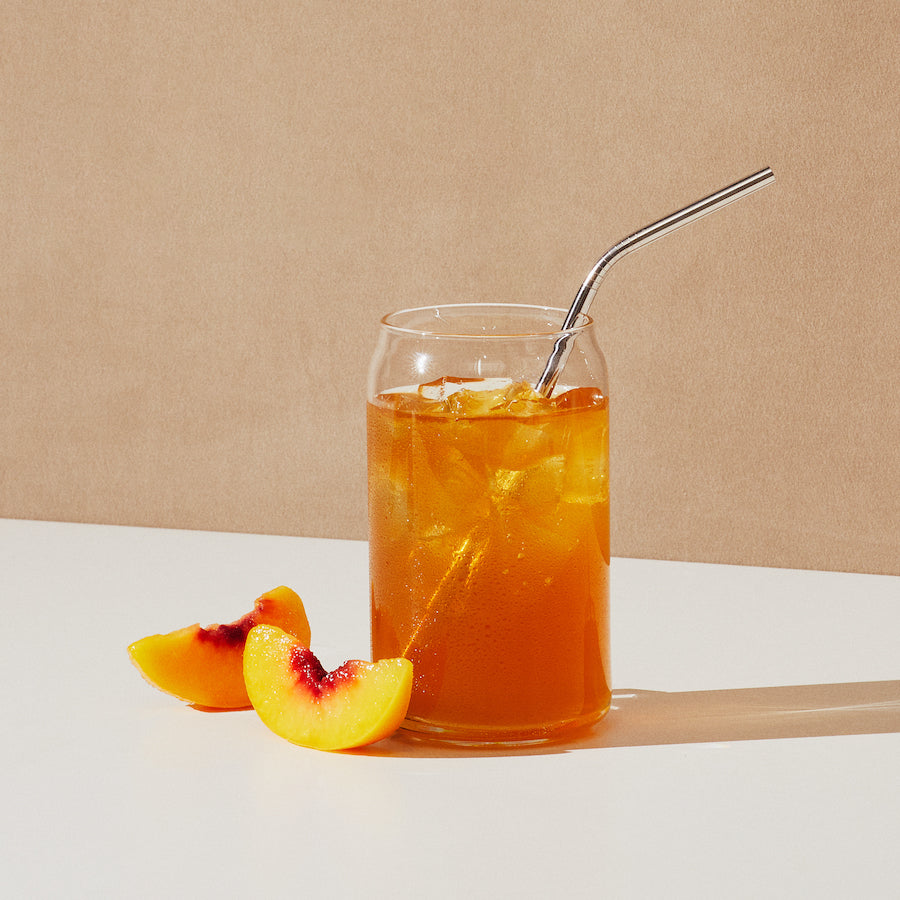Your body needs all sorts of vitamins and minerals in order to function. If you've ever played sports or done some other physically-demanding task, you've probably already heard of electrolytes. Without them, you're likely to feel sluggish and unmotivated, at least in mild cases.
Whether or not you play sports or do a lot of physical activity, you need electrolytes! Electrolytes are minerals (like potassium and sodium) that help with some essential functions in your body. Imagine trying to drive a car on low gas, tires with low air pressure, and every warning light on the dashboard flashing. That’s what it’s like to operate without the right amount of electrolytes. Except instead, you have headaches, heart palpitations, confusion, dizziness, the list goes on.
There are a lot of reasons why you may not have enough electrolytes. Excessive sweating and a lack of fluids can deplete your body of electrolytes. Taking certain medications can throw you off balance. Sometimes, it’s caused by dysfunction of certain organs.
Thankfully, it's easier than ever to add electrolytes to your diet. Modern technology creates enough options for everyone to have access to balanced meals to keep you in balance, always.
What Are Electrolytes?
Like the name suggests, electrolytes are small, electric-charged particles found in the bloodstream. You’ll probably recognize at least a few of these:
- Sodium
- Potassium
- Magnesium
- Bicarbonate
- Calcium
- Phosphate
- Chloride
Daily, healthy meals should ideally provide enough electrolytes for your body. But there are also plenty of reasons why you would lose too many electrolytes. If you workout often, you lose a lot of electrolytes through sweat. If you work outside in the heat for too long, lack of proper hydration can wreak havoc on electrolyte levels.
So if you’re looking for ways to ensure the right amount of electrolytes in your diet, read on for easy tips.
More Fruits, More Veggies
The echoes of your parents telling you to eat more fruits and vegetables will continue to haunt you, because hey, it’s important. Fruits and vegetables have a lot of water and amazing nutrients to keep your body in good health, including a variety of electrolytes. So don’t take a shortcut on the classics. Some of the best electrolyte-boosting fruits and veggies include:
- Avocados
- Spinach
- Broccoli
- Potatoes
- Oranges
- Watermelon
- Strawberries
- Kale
- Tomatoes
- Bananas
- Coconuts
If you really don’t enjoy the taste of raw fruits and vegetables, experiment with cooking them in a variety of ways. Look up recipes online or try mixing them into meals you love. Veggies can easily liven up pasta and fruit can be made into a healthy smoothie.
Mix and Match
Variety is the spice of life for a reason. That’s why eating a diverse diet of fruits, veggies, whole grains, and other important staples is so important. It ensures you get a balanced and diverse intake of essential electrolytes. As an added bonus it can prevent you from having a bigger imbalance in your body in the future.
Let’s say you know you don’t get enough potassium. You could eat an entire bunch of bananas, but despite it being fruit, that doesn’t mean you should make that the only fruit you ever eat. They may be high in potassium, but a failure to leave room for other fruits can cause a lack of proper nutrients. Sure, you fixed the potassium issue, but caused another imbalance in your body.
Try mixing slices of bananas with strawberries, blueberries, melons, and other fruits that are delicious and nutritious. The same can apply to vegetables, which are easy to mix together and use as the main course or a tasty side dish. So even if you love asparagus, make some room for the other veggies, too.
Swap Out Unhealthy Snacks with Healthy Ones
You don’t have to do a total overhaul of your diet...yet. If you want a slow and steady way to adjust to a balanced, electrolyte-focused diet, this is a great way to immerse yourself into a solid routine. You have your favorite snacks, the ones that may be delicious, but take up valuable space that should be reserved for foods that will help keep you moving.
Love potato chips? Swap them out for a plant-based chip alternative. Love the sweet taste of candy or ice cream? Make a dessert parfait with mixed fruit and yogurt. Keep brainstorming different options to keep your snacking in check and your body in shape.
No Meat? No Milk? No Problem!
If you are one of the growing population of vegans in the world, you’ve probably noticed that finding plant-based, organic options can be difficult...at first. Yes, certain meats contain electrolytes and are packed with protein, like turkey, chicken, and veal. While removing all animal products seems daunting, it is getting easier to find delicious recipes sans meat, milk, eggs, or cheese. Alternatives are out there just for you.
Take the vegan-favorite tofu. Tofu can be grilled, fried, or eaten as-is as a protein-rich option. If you’ve been paying attention, you can include pieces of it in veggie dishes, rice, pasta, and more.
Milk doesn’t need to come from cows anymore. Soy, almond, and oat milk are available in most grocery stores and are also filled with calcium, potassium, and all those other electrolytes we keep going on and on about.
Add a Drink Mix to Your Water
Water is so important you literally can’t live without it. Well, you can, but that’s at max three or four days, maybe a week if we’re being generous. But without enough electrolytes, essential functions of the body can’t happen. Unfortunately, pure water doesn’t always cover that.
For those of you constantly on the go, we get that figuring out how to plan your meals around electrolyte levels is overwhelming. Adding an electrolyte-boosting power to your drink can be a great place to start. Not just any drink mix, though. While there are plenty of options for drink mixes out there, not all of them have your best interests in mind.
At Cure, our products were most definitely made with your best interests in mind. As opposed to other drink mixes that may have added sugar (or worse, fake sugar) and other ingredients that don’t prepare your body for optimal performance, we’ve created a vegan, plant-based mix just for you. Coconut water and pink Himalayan salt are at the core of our scientifically-backed, holistic formula that has everything you could need in a healthy sports drink. Best of all, the electrolytes inside are balanced and ready to go.
Oh, and each serving is perfectly measured so you get it just right every time.
Don't Go Overboard!
Why yes, there is such a thing as too much of a good thing, even electrolytes. Without enough electrolytes, it can cause an imbalance in the body. With too much, it can do just as much damage. Here’s a few examples of how prioritizing one electrolyte over another could be a bad thing.
Sodium
A common electrolyte that we consume too much of is sodium. Most Americans consume way beyond the suggested amount of sodium every day, at least twice the recommended 1,500mg per day.
Too much sodium can cause dehydration, and dehydration can cause dizziness, confusion, seizures, heatstroke, and other complications.
This isn’t to say that sodium is terrible. No, it’s a vital part of our body’s functioning. But there’s a difference between the sodium in processed foods and unrefined salt.
Sodium in processed foods is chemically processed to remove minerals, then has its moleculate structure altered through high compression and heat. Finally, the majority of its moisture is removed before use. It’s also stabilized by refined sugar, and my include up to 2 percent conditioning agents and anti-caking agents like aluminium silicate or ammonium citrate.
On the other hand, unrefined salt contains trace minerals like iron, calcium, potassium, or magnesium in addition to sodium and chloride. Because it’s a whole food, your body metabolizes unrefined salt more easily.
Avoid processed salts by cooking at home with unrefined salt, and be mindful of the sodium numbers listed on the nutrition label of your favorite foods. Oh, and don’t forget to drink water!
Magnesium
Magnesium can be found in nuts like almonds, cashews, and peanuts. You can also find it in whole wheat products like bread or cereal. Eating these foods in moderation, like anything else, is wonderful.
However, too much magnesium may be linked to heart problems, migraines, metabolic issues, and more. That’s why adding any kind of supplement to your diet should always be discussed with your doctor. Thankfully, it’s really hard to consume too much magnesium.
Potassium
So, you missed this earlier and ate way too many bananas? A one-time mistake won’t cause too much chaos. But too much potassium can cause serious or even life-threatening issues, such as trouble breathing, fast heartbeat, a numb or tingling feeling throughout the body, and chest pain.
We’re Here For You
Too much to remember? Is it overwhelming to figure out how to keep yourself in balance? That’s why we have each packet of Cure perfectly measured to satisfy your electrolyte needs in a healthy and delicious way. Electrolyte imbalance and Cure don’t mix.
Taking care of ourselves is more important than ever. But when it comes to trying to take the best care of ourselves, the path forward isn’t always clear. Cure Hydration will help you make the right choice when it comes to your overall wellness.
Our pledge is to create products that use premium and organic ingredients and are scientifically proven to be effective.
Sources:
How Long Can the Average Person Survive Without Water? | Scientific American
9 out of 10 Americans Eat Too Much Sodium Infographic | Heart.org
Dehydration | Symptoms and causes | Mayo Clinic

